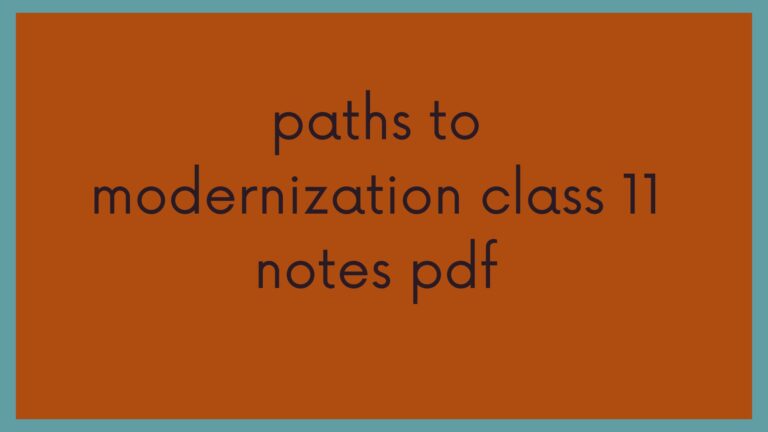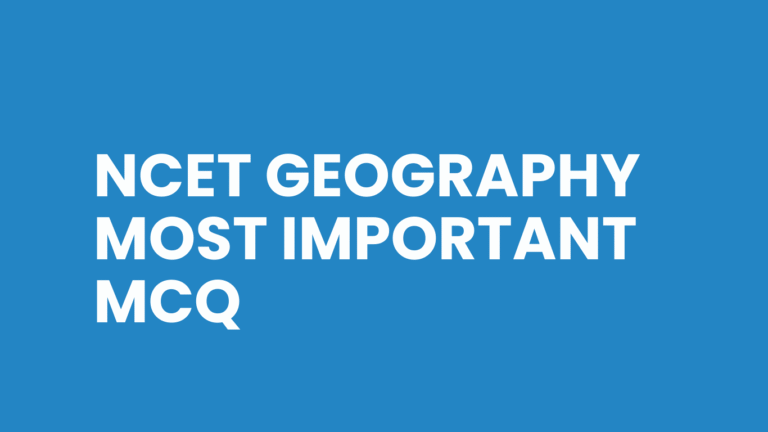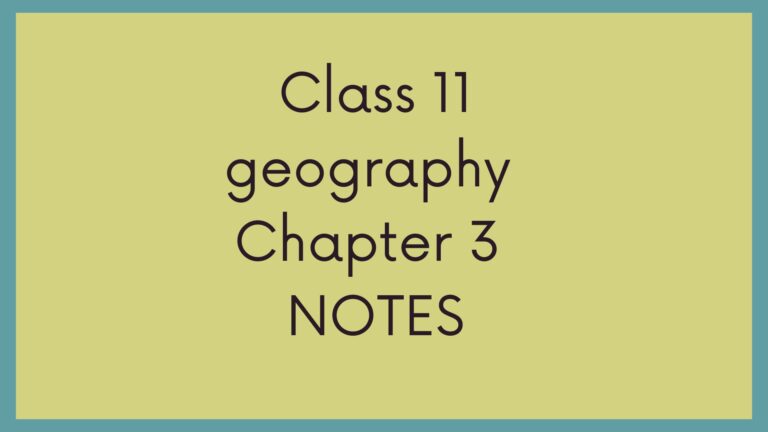Class 11 History Chapter 3 MCQ | An Empire Across Three Continents MCQ
Here you will find Class 11 History Chapter 3 MCQ. These MCQs are very helpful for your preparation. An Empire Across Three Continents MCQs are given in easy language, which you can understand easily. Make sure to go through the complete article for a better understanding. also, visit us on YouTube to get detailed videos of it.

Top 30 Class 11 History Chapter 3 MCQ
- The Roman Empire at its greatest extent was spread across:
a) Asia, Africa, America
b) Europe, Asia, Africa
c) Europe only
d) Africa and Asia only
Answer: b) Europe, Asia, Africa - Which was the capital of the Roman Empire?
a) Athens
b) Rome
c) Carthage
d) Alexandria
Answer: b) Rome - The Roman Empire was founded in:
a) 753 BCE
b) 27 BCE
c) 476 CE
d) 509 BCE
Answer: b) 27 BCE - Who became the first Roman Emperor?
a) Julius Caesar
b) Augustus (Octavian)
c) Nero
d) Constantine
Answer: b) Augustus (Octavian) - The Roman Empire collapsed in:
a) 27 BCE
b) 476 CE
c) 800 CE
d) 1453 CE
Answer: b) 476 CE - The eastern part of the Roman Empire was known as:
a) Byzantine Empire
b) Ottoman Empire
c) Holy Roman Empire
d) Persian Empire
Answer: a) Byzantine Empire - The Roman economy was mainly based on:
a) Hunting
b) Agriculture and trade
c) Fishing
d) Craft production
Answer: b) Agriculture and trade - Roman roads were important for:
a) Military movement
b) Trade
c) Communication
d) All of the above
Answer: d) All of the above - The common language of the Roman Empire was:
a) Greek
b) Latin
c) Persian
d) Arabic
Answer: b) Latin - Roman law was compiled under:
a) Augustus
b) Justinian
c) Nero
d) Constantine
Answer: b) Justinian - Gladiatorial contests were held in:
a) Circus Maximus
b) Colosseum
c) Pantheon
d) Forum
Answer: b) Colosseum - The major religion of the Roman Empire in later years was:
a) Judaism
b) Islam
c) Christianity
d) Paganism
Answer: c) Christianity - Which emperor made Christianity the state religion?
a) Augustus
b) Constantine
c) Nero
d) Julius Caesar
Answer: b) Constantine - Roman farmers primarily cultivated:
a) Rice and wheat
b) Wheat, barley, olives, grapes
c) Maize and potatoes
d) Tea and coffee
Answer: b) Wheat, barley, olives, grapes - The Mediterranean Sea was called:
a) Mare Nostrum (Our Sea)
b) Mare Romanum
c) Mare Magnum
d) Mare Internum
Answer: a) Mare Nostrum - The Roman Republic ended in:
a) 27 BCE
b) 509 BCE
c) 476 CE
d) 1453 CE
Answer: a) 27 BCE - The Roman army was famous for its:
a) Weak discipline
b) Strong organisation and discipline
c) Non-professional soldiers
d) Lack of technology
Answer: b) Strong organisation and discipline - Which emperor divided the Roman Empire into two parts?
a) Augustus
b) Diocletian
c) Constantine
d) Theodosius
Answer: b) Diocletian - The Roman Empire’s wealth was based on:
a) Gold mines only
b) Agricultural surplus and taxes
c) Slave labour and tributes
d) Both b and c
Answer: d) Both b and c - The Senate in Rome was a body of:
a) Farmers
b) Aristocrats
c) Soldiers
d) Slaves
Answer: b) Aristocrats - Which Roman general conquered Gaul?
a) Pompey
b) Julius Caesar
c) Nero
d) Augustus
Answer: b) Julius Caesar - The famous Roman aqueducts were used for:
a) Defence
b) Transport
c) Carrying water
d) Communication
Answer: c) Carrying water - The Roman emperor Nero is infamous for:
a) Expanding the empire
b) Cruelty and tyranny
c) Legal reforms
d) Religious tolerance
Answer: b) Cruelty and tyranny - Roman villas were mainly owned by:
a) Peasants
b) Aristocrats
c) Soldiers
d) Slaves
Answer: b) Aristocrats - Who was assassinated in 44 BCE, leading to civil wars?
a) Augustus
b) Julius Caesar
c) Nero
d) Constantine
Answer: b) Julius Caesar - Slavery in Rome was important because:
a) Slaves worked on farms and mines
b) Slaves were used as household servants
c) Slaves entertained in gladiatorial contests
d) All of the above
Answer: d) All of the above - The Roman Empire’s decline was partly due to:
a) Invasions by Germanic tribes
b) Economic crisis
c) Weak rulers
d) All of the above
Answer: d) All of the above - Which Roman emperor shifted the capital to Byzantium (Constantinople)?
a) Augustus
b) Constantine
c) Nero
d) Justinian
Answer: b) Constantine - Roman citizenship was gradually extended to:
a) Only Romans
b) All free inhabitants of the empire
c) Only aristocrats
d) Only military officers
Answer: b) All free inhabitants of the empire - Roman religion before Christianity was mainly:
a) Polytheistic
b) Monotheistic
c) Atheistic
d) Islamic
Answer: a) Polytheistic
Class 11 History Chapter 3 MCQ Assertion–Reason Questions
- A: Augustus was the first Roman emperor.
R: The Roman Republic ended in 27 BCE.
Answer: a) Both A and R true, R explains A. - A: Roman agriculture flourished.
R: The empire had fertile lands and slave labour.
Answer: a) Both A and R true, R explains A. - A: The Senate was the most democratic institution in Rome.
R: All classes were equally represented.
Answer: d) A false, R false. - A: Roman aqueducts symbolised advanced engineering.
R: They carried fresh water to cities.
Answer: a) Both A and R true, R explains A. - A: Christianity spread in the Roman Empire.
R: Emperor Constantine legalised Christianity.
Answer: a) Both A and R true, R explains A. - A: Roman law is considered the foundation of modern law.
R: It was codified, written, and applied equally to all citizens.
Answer: b) Both A and R true, but R not fully correct (not equal for all). - A: Julius Caesar was assassinated in 44 BCE.
R: He declared himself dictator for life.
Answer: a) Both A and R true, R explains A. - A: The Roman Empire split into eastern and western parts.
R: Diocletian divided it for administrative convenience.
Answer: a) Both A and R true, R explains A. - A: The Colosseum was mainly for religious rituals.
R: Romans sacrificed animals there.
Answer: d) A false, R false. - A: The Roman Empire collapsed in 476 CE.
R: The Germanic tribes captured Rome.
Answer: a) Both A and R true, R explains A.
Class 11 History Chapter 3 MCQ Statement-Based Questions
Q1. Select correct statements about Augustus:
- First Roman Emperor.
- Established Pax Romana (peace).
- Assassinated in 44 BCE.
- Expanded empire.
Answer: 1, 2, 4 correct.
Q2. Which statements about Roman economy are correct?
- Based on agriculture.
- Depended on slavery.
- Trade flourished in Mediterranean.
- No taxation system existed.
Answer: 1, 2, 3 correct.
Q3. Identify correct statements about Constantine:
- Legalised Christianity.
- Founded Constantinople.
- Divided empire into two parts.
- Shifted capital to Byzantium.
Answer: 1, 2, 4 correct.
Q4. Choose correct features of Roman society:
- Aristocrats dominated politics.
- Slaves formed lowest class.
- Women had equal political rights.
- Citizens enjoyed legal protection.
Answer: 1, 2, 4 correct.
Q5. Correct statements about Roman decline:
- Caused by foreign invasions.
- Economic crisis weakened empire.
- Weak leadership contributed.
- Decline was only due to Christianity.
Answer: 1, 2, 3 correct.
Class 11 History Chapter 2 MCQ | Writing and City Life Important MCQ





One Comment